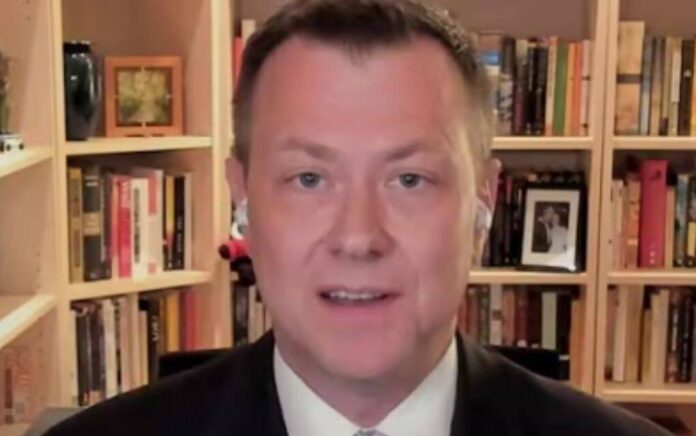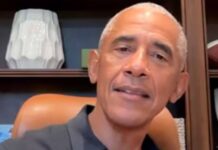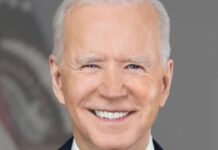
The Deep State is panicking. The Trump admin is taking an axe to their D.C. Swamp.
And now an FBI agent has gone rogue to attack the Trump admin FBI director.
A disgruntled ex-FBI agent with ties to Peter Strzok has emerged as a vocal critic of the bureau under Director Kash Patel, peddling claims of Trump-Russia links while likening the current FBI to communist spy agencies. Michael Feinberg, once the assistant special agent in charge at the FBI’s Norfolk office, quit the bureau in late May after facing questions about his close friendship with Strzok, the fired agent central to the Trump-Russia probe.
Feinberg chose to resign rather than submit to a polygraph test on his relationship with Strzok, which he said could lead to demotion instead of the headquarters promotion he anticipated. The FBI uses polygraphs routinely for employees handling sensitive information, a policy ramped up after the 2001 Robert Hanssen spy case.
Since departing, Feinberg has gained traction among anti-Trump circles, appearing on CNN, MSNBC, and chatting with Jon Stewart, while landing a gig at the Brookings-linked Lawfare blog. In these platforms, Feinberg has revived discredited narratives, insisting Trump had contacts with Russian intelligence during the 2016 election. On Stewart’s podcast in August, Feinberg equated Trump’s alleged actions to far worse than Clinton’s email server, stating, “Exactly, or talking to a foreign intelligence service.”
He reposted a Bluesky claim from professor Timothy Snyder alleging Trump as “Russia’s man,” pushing the idea of ongoing Kremlin influence. Feinberg detailed his exit in a Lawfare article, blaming scrutiny from Deputy Director Dan Bongino over his Strzok friendship, which he described as casual, sharing interests in bands and restaurants.
He claimed his boss, Dominique Evans, warned him of no promotions and a possible demotion, relaying, “I would be asked to submit to a polygraph exam probing the nature of my friendship with Pete, and (as I was quietly informed by another, friendlier senior employee) what could only be described as a latter-day struggle session.”
In his resignation letter, Feinberg protested, “I was informed by you that, because I maintain a friendship with a former FBI executive who is a critic and perceived enemy of the current administration, I will not be receiving any of the promotions for which I am currently being considered, and that I should actually steel myself to be demoted from my present role; additionally, I was informed that I should expect to be polygraphed about the nature of my friendship.”
He criticized FBI shifts toward immigration enforcement, saying, “we shirked our national security obligations in order to move personnel to immigration task forces.” Feinberg told a Lawfare podcast he was on a “glide path” to a senior role at headquarters before the Strzok issue derailed it.
Misrepresentations followed, with Stewart claiming Feinberg “was just let go because he was friends with someone the Trump administration didn’t like,” and the Steady State group labeling him among “the recent removals of seasoned FBI leaders.” In reality, Feinberg voluntarily resigned to avoid the polygraph.
Defending Crossfire Hurricane on SpyTalk in July, Feinberg pushed back against criticism, saying, “I would push back against that, actually,” and citing Mueller’s report as evidence of “seriously worrisome connections between members of the Trump campaign and the Russian government.”
He disputed facts about James Comey’s push to include the Steele dossier in the 2016 intelligence assessment, dismissing declassifications by Patel and DNI Tulsi Gabbard as partisan.
Feinberg promoted Strzok’s book “Compromised,” linking to it in his resignation letter and calling Strzok’s account “ably and comprehensively” told. He downplayed Strzok’s anti-Trump texts, attributing backlash to “conspiracy theories and slanders against the bureau in the multimedia universe that Dan Bongino previously operated.”
Feinberg escalated rhetoric, comparing Patel’s FBI to Mao’s Cultural Revolution, writing, “I would be expected to grovel, beg forgiveness, and pledge loyalty as part of the FBI’s cultural revolution brought about by Patel and Bongino’s accession to the highest echelons of American law enforcement and intelligence.”
On SpyTalk, he likened it to the KGB or NKVD after purges, stating, “What the FBI reminds me of now… is honestly what the KGB or its forerunner, the NKVD would have looked like after one of the Politburo’s ideological purges during the Cold War, or what China’s MSS would have looked like after one of the pretextual corruption hunts that have gone on in that country over the past decade or so.”
Feinberg invoked Nazi parallels, posting on Bluesky about a Columbia-Trump deal that “Heidegger would be ever so proud,” and warning Stewart of paths to a “police state” without directly naming Nazis to avoid Godwin’s law.
He suggested America might need a “truth and reconciliation commission” like post-apartheid South Africa, adding, “Absent some sort of national reconciliation process where we really do this sort of internal searching about how a lot of this consolidation of power and destruction of norms happened, I don’t know how we come back.”
Anti-Trump figures have rallied around him, including Lawfare’s Benjamin Wittes, who welcomed Feinberg with, “Boom, you’re a great American. Welcome to the other side.”
Feinberg joined Justice Connection, a DOJ alumni network “to protect our former colleagues who are under attack,” and was praised by Miles Taylor, the “Anonymous” op-ed author, as “what courage looks like.”
Despite claiming conservative roots, like Federalist Society membership, Feinberg scorned modern conservatism, mocking those with “We the People” tattoos and Gadsden flags. He advised insiders via Signal and LinkedIn on resisting orders, noting “there’s ways to put sand in the gears if you’re really uncomfortable doing something.”



















